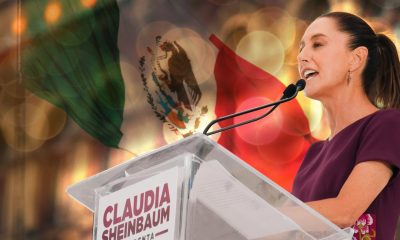

Feature
Five things to know about Mexico President-elect Ms. Claudia Sheinbaum
Mexico has elected its first female president as preliminary results from the country’s National Electoral Institute show that Claudia Sheinbaum has won more than 59.3% of the vote in Sunday’s presidential election. Sheinbaum, a member of the left-leaning Morena Party, defeated her closest opponent, Bertha Xochitl Galvez Ruiz of the right-leaning National Action Party, by more than 30 percentage points.
Data from security agency Integralia identified this year’s election cycle as the deadliest in Mexico’s history, as it was marked by 37 assassinations of political candidates. This broke the record of 36 assassinations recorded in the 2021 midterm election cycle.
Sheinbaum is not a newcomer to politics, as she served as the Head of Government of Mexico City from 2018-2023. In addition to the notoriety she has received due to the historic nature of her candidacy, Sheinbaum has also developed a reputation as a leader of progressive thought in her country and an influential academic on the world stage. Here are five things to know about the president-elect of Mexico.
READ ALSO
- Davido Announces 5IVE Alive Tour in Five Cities in Nigeria
- Enugu: Read Full Text of Governor Peter Mbah APC defection speech
- Lagos Re-Arraigns Evans For Alleged Murder Of Two Policemen
- ‘Taking Nigeria’s Situation to God’ Peter Obi’s Message After Visit to Rome
- VIDEO: Lagos Govt demolishes Ola of Lagos showroom
- Background in science and engineering
According to a biography on the now-archived version of the Head of Government of Mexico City’s website, Sheinbaum “trained as a physicist in the classrooms of the [National Autonomous University of Mexico] Faculty of Science.” She holds a master’s degree in energy engineering and a doctorate in environmental engineering.
A member of the National System of Researchers and the Mexican Academy of Sciences, Sheinbaum has authored over 100 publications and two books on topics related to energy, the environment and sustainable development.
Additional career highlights preceding her time in public office include membership on the Intergovernmental Panel on Climate Change, which received a Nobel Peace Prize, and serving as a consultant for the World Bank and the United Nations Development Program.
- Identifies as non-religious despite Jewish heritage
In addition to becoming the first female president of Mexico, Sheinbaum is also the first person from a Jewish background to lead the country. However, she has insisted that religion does not play a significant role in her life.
In a 2020 interview with The New York Times, Sheinbaum elaborated on her background.
“Of course, I know where I came from, but my parents were always atheists,” she said. “I never belonged to the Jewish community, and we grew up kind of removed from that.”
Sheinbaum made a similar comment while speaking to a Jewish organization in Mexico City two years earlier, asserting that “I actually grew up without religion; that’s how my parents raised me.” At the same time, she acknowledged that “Culture runs in the blood.”
- An outspoken supporter of LGBT advocacy
In an X post last year, Sheinbaum declared that as head of Mexico City’s government, she created “the Comprehensive Health Unit for Trans People.”
“At the end of 2022, 5,101 trans and non-binary people were served free of charge,” the politician wrote, according to an English translation. “My dream is to continue fighting for people of sexual diversity, as I did in Mexico City.”
Sheinbaum posted a series of tweets expressing support for the LGBT pride parade that took place in her city in 2022.
One post included a video documenting several LGBT pride flags and the transgender pride flag flying on buildings in Mexico City, accompanied by a statement from her.
“We are ready for the 44th Pride March,” the statement reads, accompanied by emojis of the two flags that have come to symbolize LGBT advocacy. She also described her city as “a diverse, inclusive city of freedoms.”
Sheinbaum posted images from the parade, painting her city as a “City of rights and freedoms.”
She declared the city’s “commitment to continue advancing the rights of LGBT+ people and an inclusive and diverse society that sanctions all forms of discrimination.”
She also shared an aerial image of the parade, noting, “An influx of 250 thousand people is recorded in the Pride March.”
Another post showed “monuments and buildings” in the city “painted in rainbow colors” to “mark the pride of being a diverse, fraternal and Inclusive city” along with the hashtags #PrideMonth and #Pride2022.
Later in 2022, Sheinbaum praised the legalization of same-sex marriage in two Mexican states.
“Today the entire country advances in equal rights with the approval of equal marriage in Guerrero and Tamaulipas, I celebrate the display of will and the search for justice for all of both state Congresses. Love is love.”
READ ALSO
- Davido Announces 5IVE Alive Tour in Five Cities in Nigeria
- Enugu: Read Full Text of Governor Peter Mbah APC defection speech
- Lagos Re-Arraigns Evans For Alleged Murder Of Two Policemen
- ‘Taking Nigeria’s Situation to God’ Peter Obi’s Message After Visit to Rome
- VIDEO: Lagos Govt demolishes Ola of Lagos showroom
- Supports abortion
Sheinbaum’s Proyecto de Nacion, which includes 100 points that she considers her top priorities, includes a proclamation that “We will guarantee access to women’s health throughout their life cycle, especially with regard to sexual and reproductive health.”
A 2021 decision by the Mexico Supreme Court of Justice, the country’s equivalent to the U.S. Supreme Court, determined that a state law subjecting women who have abortions to criminal punishment was unconstitutional. Sheinbaum shared a video of then-Supreme Court Minister President Arturo Zaldivar announcing the ruling, posting emojis of clapping hands indicating her approval of it.
As explained in a statement announcing the decision, the body “ruled for the first time in favor of guaranteeing the right of women and pregnant people to decide, without facing criminal consequences.” The ruling also determined that a state law limiting abortion to the first 12 weeks of pregnancy in cases of rape was unconstitutional.
- Shares Pope Francis’ admiration for ‘humanist thought’
While Sheinbaum regards herself as non-religious, she spoke warmly of an encounter with Pope Francis in an X post published earlier this year.
She highlighted her tendency to include a quote from the pontiff in her speeches: “The only licit way to look at someone from top to bottom is when you give them your hand to get up.”
After describing the quotation as “one of the most profound and beautiful lines about brotherhood and equality I’ve ever heard,” Sheinbaum discussed her one-on-one meeting with Francis.
“It was an exceptional hour that I will never forget, with a simple and warm way that shows its greatness. I brought him some beautiful pieces from the Wixarica people as a gift,” she wrote.
“In addition to being the highest representative of the Catholic Church, the religion of the vast majority of my people, I have deep admiration for his humanist thought,” she added.
Expressing gratitude for the “great life advice” he gave her, Sheinbaum praised the pontiff as “one of the greatest global leaders and thinkers of recent times.”
Ryan Foley is a reporter for The Christian Post. He can be reached at: ryan.foley@christianpost.com
Feature
Ex-Oyo Governor Ladoja Installed as 44th Olubadan of Ibadan
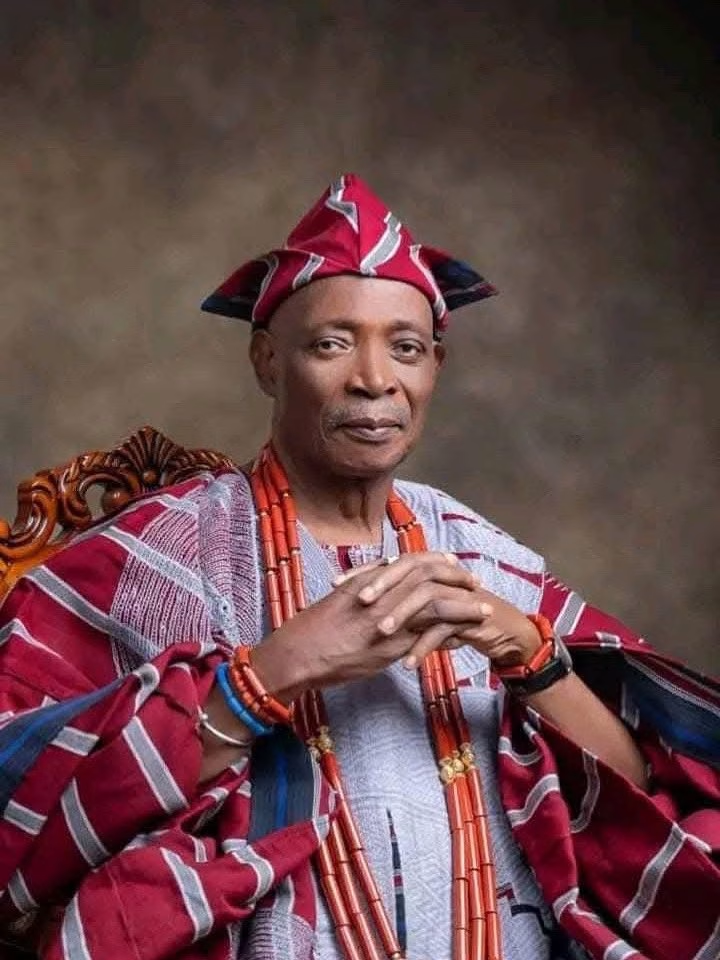
The odyssey of Senator Rashidi Adewolu Ladoja to the ancestral throne of Ibadan is not only historic but profoundly political, laced with trials and triumphs.
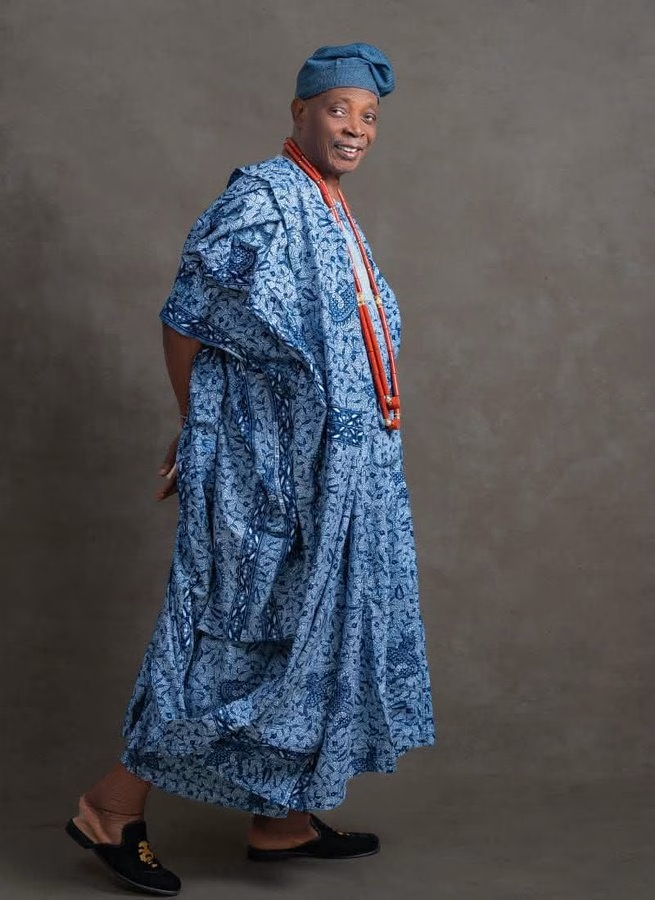
History often unfolds slowly, like a scroll revealing one line at a time. In Ibadan, a city steeped in tradition and resilience, history has once again taken a defining turn.
Oba Rashidi Adewolu Ladoja, former governor of Oyo State, businessman, politician, and activist, is now preparing to ascend the exalted throne as the 44th Olubadan of Ibadanland.
His decades-long journey, filled with trials, victories, and service, tells a compelling story of destiny, courage, and legacy. From political powerhouses to royal lineage, from boardrooms to the battlefields of democracy, Ladoja’s life blends tradition with transformation. His ascension is not only personal fulfilment but also a cultural and historical moment for Ibadanland.
Indeed, his coronation stands as a milestone, a testament to resilience, faith, and destiny fulfilled. On September 26, 2025, Oba Ladoja will be crowned the 44th Olubadan of Ibadanland, closing a circle that began 34 years ago when he became Mogaji of his family compound in Isale-Osi. But this is no ordinary coronation; it is the culmination of a saga defined by ambition, resistance, exile, betrayal, resilience, and ultimately, triumph.
Road to Royalty: From Mogaji to Monarch
It began in 1991 when Rashidi Ladoja became Mogaji (family head) of the Arusa compound in Isale Osi, a deeply rooted quarter in Ibadan South-West Local Government Area. That symbolic beginning marked the first step on Ibadan’s rigorous 36-step chieftaincy ladder, reserved for those destined to wear the revered crown.
The Ibadan succession system is unique among Yoruba kingdoms. Unlike other traditional stools where royal families are narrowed to specific lineages, the Olubadan system is remarkably open and transparent. Two lines of succession, the civil (Otun) and the military (Balogun), run concurrently, and candidates rise step by step until the next in line becomes Olubadan. It is an orderly system that rewards longevity, patience, and service, making the throne one of the most respected in Yorubaland.
On October 1, 1993, Ladoja was installed as Jagun Balogun Olubadan, formally entering the military line of succession. Over the next 31 years, he advanced steadily, surviving political turbulence, personal setbacks, and traditional disputes. Few endure the politically charged and physically demanding journey to the top, but Senator Ladoja did — with grit, patience, and determination.
“I never imagined destiny would call me to the throne at this time. It’s been one of patience, perseverance, and grace,” Oba Ladoja told a gathering at his Bodija residence after his official nomination.
Political Elite Meets Royal Heritage
In a city of warriors and statesmen, Oba Ladoja is the first former governor and senator to become Olubadan.
Trained as a chemical engineer in Belgium, he made his mark in oil, shipping, banking, agriculture, and transport before rising as a political force.
During the short-lived Third Republic, he was elected senator on the platform of the defunct Social Democratic Party (SDP). In 2003, he defeated incumbent Lam Adesina to become Governor of Oyo State on the platform of the Peoples Democratic Party (PDP).
Two years later, he was impeached in what many described as a conspiracy driven by then-President Olusegun Obasanjo and political strongman, Lamidi Adedibu. His reinstatement by the Supreme Court after 11 months in exile was more than a legal victory — it was a political resurrection. It cemented his reputation as “the indomitable warrior”, a man political opponents could not erase or ignore.
That resilience, combined with patient navigation of Ibadan’s chieftaincy system, has now borne fruit.
“It has been a bumpy journey filled with trials, but only made possible by the grace of God,” he told jubilant supporters.
Defiance and Reconciliation
Ladoja’s political career was often defined by principles that put him at odds with powerful figures.
In 2018, when then-Governor Abiola Ajimobi crowned Ibadan High Chiefs as kings, Ladoja stood alone in defiance. He rejected what he called a “carton-paper-made” beaded crown, declaring that the only crown worthy of him was the Olubadan’s. His refusal sparked years of political and legal confrontation.
“Why should I wear a crown not recognised by tradition?” he asked. “The throne is not for the desperate.”
Yet, in August 2024, in a radio interview, he softened his stance, saying unity was more important than pride: “The voice of the people is the voice of God. I am ready to accept the beaded crown if it will bring peace and allow me to serve the people of Ibadan.”
That statement shifted the atmosphere. His colleagues in the Olubadan-in-Council rallied behind him, and he was soon unanimously nominated and approved by Governor Seyi Makinde as the 44th Olubadan.
Unlike his clashes with Ajimobi, Ladoja’s relationship with Governor Makinde has been cordial and strategic. Makinde’s prompt approval of his nomination reflected a convergence of political and traditional power, a necessity in Oyo State where the Olubadan stool carries both cultural influence and political weight.
The Crown and the City
Ibadan is no ordinary city. It is the largest traditional Yoruba urban centre and the historic political capital of the old Western Region. The Olubadan, though largely symbolic, wields influence over millions.
For Oba Ladoja, this reign is not ceremonial. It is an opportunity to redefine the stool, blending cultural authority with political wisdom.
“I pray that my reign shall bring peace, prosperity, and progress to Ibadanland,” he said, calling for unity.
Expectations are high. From Oke Aremo to Abuja, all eyes are on him to redefine the modern monarch’s role not just custodian of rituals, but guardian of peace, diplomacy, and security. He has already urged coordinated efforts to secure Ibadan and Yorubaland amid rising insecurity.
The coronation of Oba Ladoja is more than a local event; it is a national stage. Expected guests include President Bola Tinubu, former Vice President Atiku Abubakar, Senator Rabiu Kwankwaso, former governors, business moguls, activists, and traditional rulers across Yorubaland and beyond.
Their presence underlines the symbolic place of Ibadan in Yoruba and Nigerian politics.
Activism, Sacrifice, and Legacy
Ladoja’s story is not just about royalty; it is about activism and identity. As a NADECO stalwart, he stood against military rule in the 1990s, supporting the pro-democracy struggle after the annulment of the June 12 election.
Chief Adeniyi Akintola (SAN) recalls: “We used his ships for NADECO’s activities after the Senate was dissolved. His businesses were seriously affected — he had a shipping line and the largest palm plantation in West Africa then.”
As governor, he challenged a sitting president. As High Chief, he resisted compromising tradition. As a businessman, he sacrificed fortune for democracy. Now, as Olubadan, he embodies the fusion of political power and cultural authority.
To former Nigerian Ambassador, Dr. Yemi Farounbi, “Ibadan is the intellectual capital of Nigeria. It provided security for the Yoruba in times of war. Peace must return, and the Olubadan must lead it.”
Professor Tunde Adeniran, a former minister, added: “He comes with experience and expansive networks. Expectations are high. We must rally around him.”
For younger Ibadan residents, his ascension represents continuity and hope. “We grew up hearing about his struggles as governor and his fight for justice,” said Akeem Alabi, a postgraduate student at the University of Ibadan. “Now he is our king. We expect him to stand for the people, just as he did in politics.”
The Crown After the Storm
For many, the crowning of Oba Rashidi Ladoja is poetic justice, a fitting epilogue to a life of battles in politics, business, and tradition.
From Mogaji in 1991 to Olubadan in 2025, from impeachment to reinstatement, from defiance to reconciliation, he now wears the crown not as a reward but as a responsibility.
The royal father is no longer just the “cat with nine lives”; he is the king whose destiny has come full circle.
Governor Seyi Makinde has expressed readiness to work seamlessly with Oba Ladoja towards the development of Ibadan city, describing the new monarch as an exemplary leader whose wealth of experience in politics, business, and community service will enrich the Olubadan stool.
Makinde recalled that his own political journey could not be written without Ladoja’s role, stressing that: “Baba remains a father figure whose guidance has shaped many of us. I hold him in high esteem, and I believe Ibadan and Oyo State will benefit from his reign as Olubadan.”
As Ibadan embraces this new chapter, the coronation of Oba Rashidi Adewolu Ladoja stands as both history and prophecy fulfilled a story of destiny, resilience, and triumph, written across the canvas of politics, tradition, and legacy.
CULLED FROM THE GUARDIAN
Feature
𝗜𝗻𝘁𝗹. 𝗗𝗮𝘆 𝗼𝗳 𝗣𝗲𝗮𝗰𝗲: 𝗛𝗼𝗻. 𝗢𝘁𝘂𝗼’𝘀 “𝗡𝗼 𝗗𝗶𝘀𝗰𝗿𝗶𝗺𝗶𝗻𝗮𝘁𝗶𝗼𝗻 𝗣𝗼𝗹𝗶𝗰𝘆” 𝗮 𝗣𝗮𝘁𝗵𝘄𝗮𝘆 𝘁𝗼 𝗣𝗲𝗮𝗰𝗲𝗳𝘂𝗹 𝗔𝗻𝗱𝗼𝗻𝗶
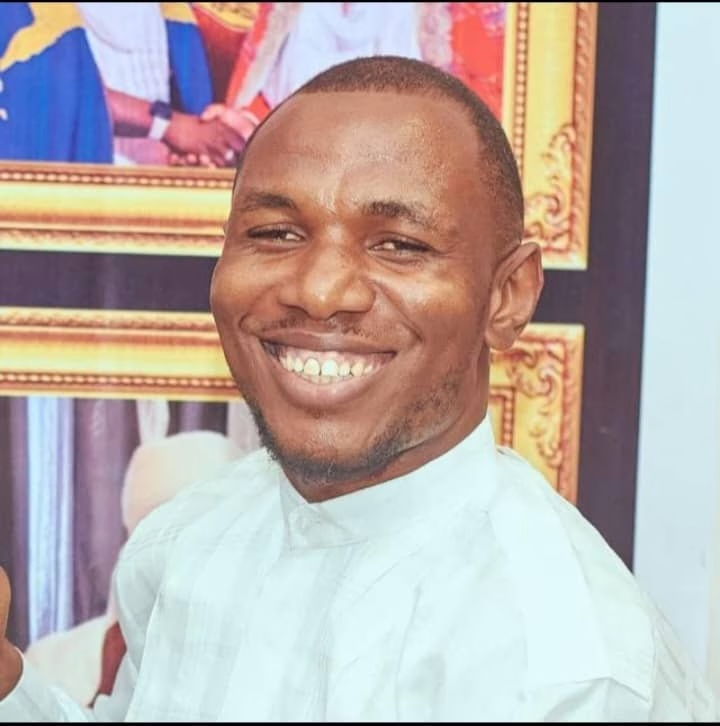
By Ima-owaji G. Shedrack
As the world commemorates the International Day of Peace, attention has once again shifted to the bold and inclusive policies of the Chairman of Andoni Local Government Area, Hon. Promise Lucky Otuo, whose leadership style has been described as a model for peacebuilding and sustainable development.
Since assuming office, Hon. Otuo has consistently emphasized that his government is a “no discrimination government,” a philosophy set to guide his policies and programs across the council.
In a remarkable demonstration of this principle, the Chairman extended empowerment opportunities not only to indigenes but also to non-indigenes residing and trading in Andoni. This inclusive approach, observers say, has deepened trust, fostered unity, and reduced the tensions that often arise from feelings of neglect or inequality.
Mr. Ima-owaji G. Shedrack, a stakeholder in the Renewed Hope family, applauded the initiative, noting that Hon. Otuo has shown that peace is not just about preventing conflict but also a conscious steps in building an environment where fairness and inclusiveness are at the center of governance.
“As Andoni joins the world to mark the International Day of Peace, Hon. Lucky Otuo’s leadership style that is anchored on ‘no discrimination’ is built to offer a clear roadmap, where peace is not only preached but practiced through deliberate policies of fairness and equal opportunity.”
Follow BONA NAIJA for more
Feature
Eid-ul-Mawlid: Uphold Hon. Lucky Otuo in your prayers, Ima-owaji Shedrack Urges non indigenes in ANOLGA

A stakeholder in Andoni Local Government Area of Rivers State, Ima-owaji Shedrack, has called on Muslim faithful in the area to remember the Chairman of Andoni LGA, Hon. Lucky Promise Otuo, in their prayers as they celebrate Eid-ul-Mawlid, the commemoration of the birth of Prophet Muhammad (SAW).
Speaking on Friday during the nationwide celebration, Ima-owaji stressed the importance of continuous prayers for leaders at all levels, describing Hon. Lucky Otuo’s administration as one that transcends sentiments, tribal lines, and religious differences.
“The government of Hon. Lucky Otuo is one beyond discrimination. Both indigenes and non-indigenes are carried along. This is why I urge our Muslim brothers and sisters to use this sacred celebration to pray for him and for the peace, progress, and prosperity of Andoni LGA,” Ima-owaji said.
He further noted that the Eid-ul-Mawlid celebration provides Muslims with another opportunity to renew their commitment to unity and inclusiveness, while also offering prayers for leaders who are steering the affairs of the people with sincerity.
Ima-owaji urged residents of Andoni, regardless of religion or origin, to embrace peace and support the development agenda of Hon. Otuo’s administration, which he said is focused on progress and inclusivity.
Follow BONA NAIJA for more
Feature
What to Know About CBN’s New Geo-Tagging Requirement for POS Terminals
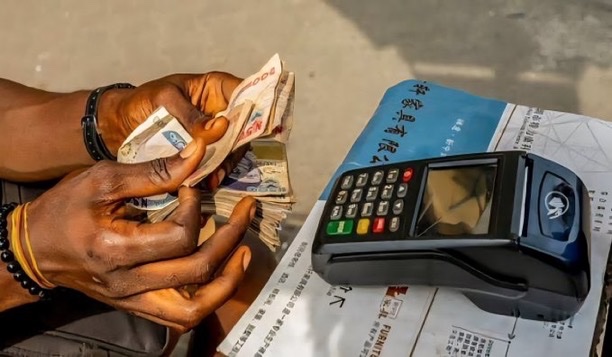
The Central Bank of Nigeria (CBN) has issued a new directive requiring all Point of Sale (POS) terminals to be geo-tagged within the next 60 days, a move designed to curb fraud, enhance oversight, and modernize Nigeria’s digital payment ecosystem.
According to a circular released on August 26, 2025, any terminal not geo-tagged will be deactivated from October 20, 2025.
“This initiative is designed to ensure that all PoS terminals are traceable and that transactions are secure. Terminals operating outside their registered location will be flagged, and non-compliant devices will be deactivated,” the CBN stated.
Here’s a breakdown of what the policy means for operators, agents, merchants, and customers.
What Geo-Tagging Means
Geo-tagging is the process of embedding location data, such as latitude and longitude, into a digital device.
For POS terminals, this means linking each machine to its exact physical address using GPS technology, creating a traceable digital footprint that makes every device verifiable and harder to misuse.
The CBN’s Key Requirements
- Geolocation Features
All POS devices must have GPS and dual-frequency receivers for accurate location tracking. - Real-Time Location Transmission
Terminals must capture and transmit their exact location at the start of every transaction. - Geofencing
Each POS terminal will be restricted to a 10-metre radius around its registered location. Transactions outside this zone will be flagged for investigation. - Registration
Licensed banks and fintechs—such as Moniepoint, OPay, PalmPay, and others—must register each device with exact merchant coordinates through a payment aggregator. - New Devices
No new terminal will be certified or activated without geo-tagging.
Why Geo-Tagging Matters
- Crackdown on Fraudulent Terminals
Geo-tagging eliminates “ghost” or cloned devices and reduces card fraud, unauthorized withdrawals, and misuse of mobile POS machines. It also disrupts ransom collections and terrorism financing through untraceable transactions. - Better Oversight and Transparency
Regulators gain real-time visibility of nationwide transactions, improving fraud detection and aiding financial inclusion strategies by identifying underserved areas. - Boosting Consumer Trust
Customers gain stronger protection knowing every POS is tied to a verified address, building confidence in digital payments.
Impact on Stakeholders
- Banks & Fintechs
Institutions face the challenge of upgrading thousands of terminals and registering them within 60 days, requiring both funding and logistics. - POS Agents & Merchants
Operators must work strictly within 10 metres of their registered business location, potentially disrupting mobile POS services that move around to serve customers. - Customers
Shoppers stand to benefit most, with safer and more transparent transactions in Nigeria’s payment system.
Conclusion
The CBN’s geo-tagging directive is one of the most sweeping reforms in Nigeria’s digital payments landscape. While it presents operational hurdles for banks, fintechs, and agents, it promises stronger security, fraud reduction, and renewed consumer trust in the long run.
Follow BONA NAIJA for more
Feature
Goodluck Nwaneri Pays Condolence Visit To The APC National Chairman
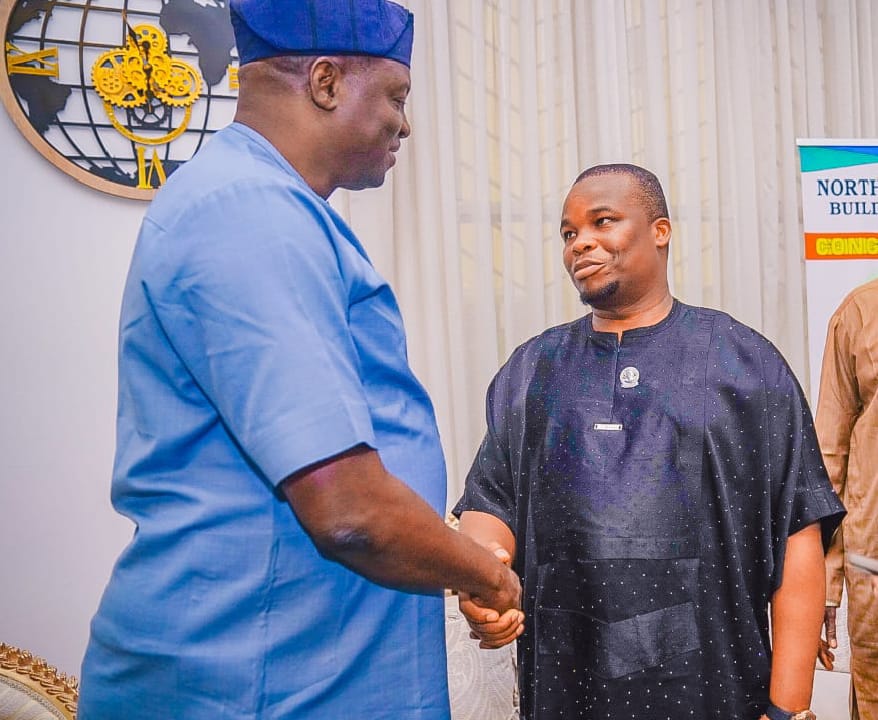
Chief Goodluck Nwaneri, a Director city boy movement, has paid a condolence visit to the APC National Chairman, Prof. Nentawe Yilwatda, at his residence in Abuja, following the passing of his beloved mother, late Mrs. Lydia Toma Yilwatda.
During the visit, Chief Nwaneri expressed his deep sympathy to Prof. Nentawe and the entire Yilwatda family, describing the death of a mother as a painful and irreplaceable loss. He noted that the late Mrs. Lydia Toma Yilwatda lived an exemplary life of faith, humility, and service, evident in the leadership qualities and values instilled in her children.
Chief Nwaneri prayed for the peaceful repose of her soul and asked God to grant the APC National Chairman and his family the strength and fortitude to bear the painful loss. He also encouraged them to find comfort in the enduring legacy their mother left behind.
He further reaffirmed his solidarity with Prof. Nentawe in this moment of grief, while urging the family to remain strong and united in honoring the life and memory of their departed matriarch.
-

 Entertainment1 week ago
Entertainment1 week agoBig Brother Naija Live Update: KOLA, SULTANA Evicted #BBNaija
-

 Music3 weeks ago
Music3 weeks agoOdumodublvck Drops “Industry Machine” Feauturing Wizkid Ahead of 23-Track Album
-

 Entertainment1 week ago
Entertainment1 week agoImisi Crowned Winner of Big Brother Naija Season 10
-

 Biafra3 weeks ago
Biafra3 weeks agoJudgement Day: Tension in Abuja as Court Rules on Nnamdi Kanu’s No-Case Submission Today
-

 Entertainment3 weeks ago
Entertainment3 weeks agoContent Creator Mandy Kiss Announces Guinness World Record Sex Marathon Attempt
-

 Entertainment3 weeks ago
Entertainment3 weeks agoBBNaija Update: Joanna, Kuture Sent Packing as Week 9 Evictions Shock Fans
-

 Music News1 week ago
Music News1 week agoOdumodublvck Set to Drop ‘Industry Machine’ The Album Featuring Davido, Wizkid, Skepta & Stormzy
-

 Music News3 weeks ago
Music News3 weeks agoWizkid’s Made in Lagos becomes top-selling African album in U.S.
-

 Music3 weeks ago
Music3 weeks agoSarz Drops Debut Album Featuring Wizkid, Asake, Skillibeng
-

 Music3 weeks ago
Music3 weeks agoSpyro Releases Debut Album The Men, The Boys & Your Guy



